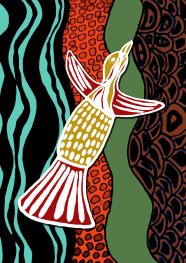Loading...
Presentation Type
Presentation
Location
The University of Notre Dame Australia Graduation Square, 88 Guy Street, Broome
Event Website
https://events.nd.edu.au/2024-nulungu-reconciliation-lecture
Start Date
29-8-2024 5:30 PM
Description
The path to reconciliation must be underpinned by truth. Without truth, we can only build a flawed future for our continent and our people. The narrative of modern Australia is based on a lie. The lie that this continent was unoccupied at the time of the British Invasion – a terra nullius. This lie pervades the very fabric of our nation and is causing serious harm to its people and its very health. Right now, Australia is facing enormous environmental challenges that threaten the health of Country across our continent. Finding solutions to these challenges is critical if we hope to live sustainably over the long-term.
While climate change is placing ever increasing pressures on human and natural systems, many of the challenges we face – such as species loss and catastrophic bush fires – began long before the onset of anthropogenic climate change. In this talk, I will highlight and then dispel the series of myths upon which modern Australia’s identity is built. This identity shapes the way we attempt to manage our environments and is, in many instances, doing more harm than good. I will draw upon a range of data sources to demonstrate that cultural factors are as equally important as climate change. I urge that we seek to understand the truth of Country so that harmful myths, such as “Wilderness”, do not continue to result in the neglect of Country that needs care. We need, instead, to understand how our landscapes have been shaped by Aboriginal people for tens of thousands of years if we are to succeed in our efforts to mitigate catastrophic bush fires and biodiversity loss. It is by reconciling with these truths that we will return health to Country and its people.
Recommended Citation
Fletcher, Michael-Shawn, "Healthy Country: Re-writing the book on Australia" (2024). Nulungu Reconciliation Lecture. 1.
https://researchonline.nd.edu.au/nulungu_reconciliationlecture/2024/schedule/1
Healthy Country: Re-writing the book on Australia
The University of Notre Dame Australia Graduation Square, 88 Guy Street, Broome
The path to reconciliation must be underpinned by truth. Without truth, we can only build a flawed future for our continent and our people. The narrative of modern Australia is based on a lie. The lie that this continent was unoccupied at the time of the British Invasion – a terra nullius. This lie pervades the very fabric of our nation and is causing serious harm to its people and its very health. Right now, Australia is facing enormous environmental challenges that threaten the health of Country across our continent. Finding solutions to these challenges is critical if we hope to live sustainably over the long-term.
While climate change is placing ever increasing pressures on human and natural systems, many of the challenges we face – such as species loss and catastrophic bush fires – began long before the onset of anthropogenic climate change. In this talk, I will highlight and then dispel the series of myths upon which modern Australia’s identity is built. This identity shapes the way we attempt to manage our environments and is, in many instances, doing more harm than good. I will draw upon a range of data sources to demonstrate that cultural factors are as equally important as climate change. I urge that we seek to understand the truth of Country so that harmful myths, such as “Wilderness”, do not continue to result in the neglect of Country that needs care. We need, instead, to understand how our landscapes have been shaped by Aboriginal people for tens of thousands of years if we are to succeed in our efforts to mitigate catastrophic bush fires and biodiversity loss. It is by reconciling with these truths that we will return health to Country and its people.
https://researchonline.nd.edu.au/nulungu_reconciliationlecture/2024/schedule/1






Comments
Biography
Professor Michael-Shawn Fletcher is a Wiradjuri man and a Geographer. Michael’s research focusses on understanding the physical and social drivers of past landscape change across the Southern Hemisphere using the information stored in wetland sediments and tree rings. Michael’s drive is to develop a deeper understanding of how the world around us operates. He is particularly focused on how our long-term relationship with Country influences who we are, as well as influencing the environments in which we live. Michael is a deputy director of the ARC Centre of Excellence for Indigenous and Environmental Histories and Futures, and the Associate Dean (Indigenous) in the Faculty of Science at the University of Melbourne.